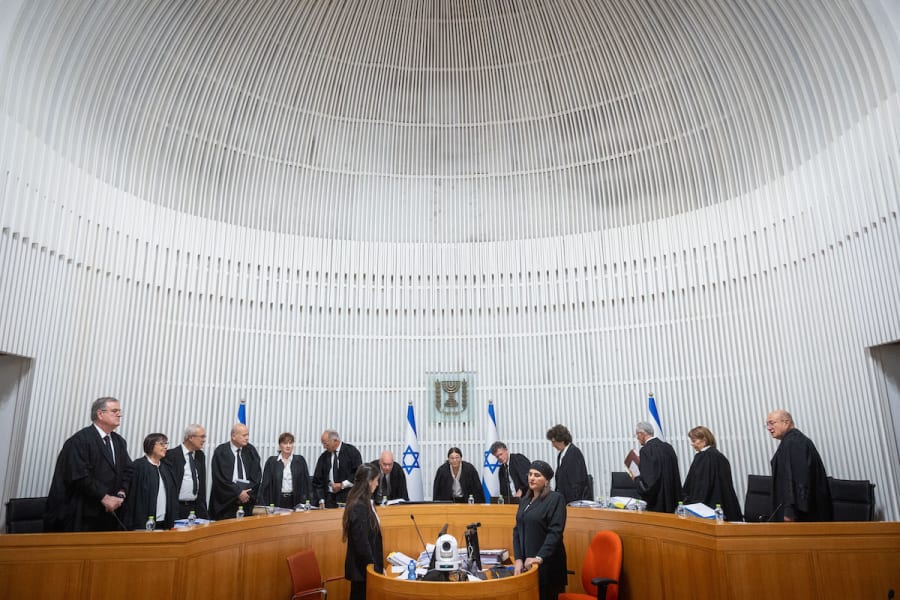Who has ultimate authority? Israel continues to discuss after historic High Court hearing
Decision expected to take weeks or even months

The day after the historic and dramatic High Court hearing of petitions against the Reasonableness Law, the discussions about its main themes continued throughout Israel.
One of the most contentious issues debated during the hearing was where the ultimate authority over the State of Israel originated from, and with whom it should lie.
Both the government’s attorney Ilan Bombach and Knesset Member Simcha Rothman forcefully argued that decisions made by the people, through their elected representatives in the Knesset, should not be overridden by unelected judges.
According to the two government officials, the will of the people should be the ultimate authority in a democracy.
Bombach caused considerable uproar when he challenged the judges’ view that Israel’s Declaration of Independence gave the courts the authority to nullify laws that were legislated by the Knesset.
He stressed that the signatories of the declaration were unelected and that it was, therefore, “unthinkable” to say the declaration must “bind all future generations.” The declaration can’t be seen as a legal text, he argued.
Justice David Mintz, considered by many as a conservative judge, seemingly concurred with Bombach when he told the other judges: “By referring to the Declaration of Independence, you are creating something out of nothing, there is no implied authority [from the declaration]."
Opposition leader Yair Lapid's Yesh Atid party slammed Bombach’s comments on Wednesday, saying that his remarks proved “that there is an anti-Zionist, anti-Israeli, anti-democratic government in Israel that will burn the pages of history and tarnish the founders of the state, all for despicable political considerations.”
In another contentious speech, Rothman accused the court of robbing the public of “the ability… to change the laws that run their lives, to determine how the government is run.”
Rothman also argued that the court had no authority to act as a final check on the Knesset’s legislation.
Both Rothman and Justice Minister Yariv Levin, the main architects of the judicial reform, have repeatedly stated their position that the democratic process itself acted as a check on bad laws.
“If we make a mistake, we can correct it when we are made aware of it, and if we don’t — we can be replaced via the ballot box,” he added.
Levin had released a statement shortly before the hearing on Tuesday, stressing that the people should be sovereign.
“The court, whose justices elect themselves behind closed doors and without a protocol, is placing itself above the government, above the Knesset, above the people and above the law,” Levin added.
The petitioners opposed to the law, on the other hand, either argued for the existence of checks regarding the Knesset’s legislation or argued broadly against the judicial reform itself.
Dr. Eliad Shraga, head of the NGO Movement for Quality Government, argued that with this law, the legislature “invaded” the realm of the judiciary, thereby harming the separation of powers and the court’s independence.
The court’s final verdict based on Tuesday's hearing is expected to take weeks or even months. The final deadline for the decision will be next January, as High Court President Esther Hayut, will retire this month and will only be permitted to issue opinions on open cases for three more months.
The next showdown between the government and the High Court over the judicial reform will occur on Sept. 19 when the court will hear petitions against Justice Minister Levin’s refusal to convene the Judicial Selection Committee.
Levin intends to hold off on convening the committee until its composition and rules have been reformed as part of the judicial reform push.

The All Israel News Staff is a team of journalists in Israel.
You might also like to read this:
















